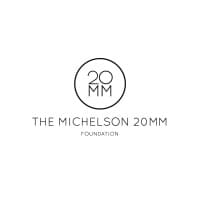Description:
The Student Fellowship ProgramThis fellowship will sit within the Michelson Institute for Intellectual Property (MIIP). The MIIP program, a non-profit initiative of the Michelson 20MM Foundation, aims to empower the next generation of inventors, entrepreneurs and creators with the knowledge needed to protect and commercialize their innovations. MIIP was founded in 2016 by prolific medical inventor Dr. Gary K. Michelson. Dr. Michelson is the sole-named inventor of nearly 1000 patents worldwide, and is an inductee of the National Inventors Hall of Fame and the National Academy of Inventors.
To date, over 400 colleges and universities nationwide have incorporated MIIP resources, designed to offer foundational education on patents, copyrights, trademarks and trade secrets, into their curricula and programs.
The ideal candidate will either be a 1L or 2L currently enrolled in law school with an interest in pursuing intellectual property practice, possess excellent communication both oral and written, excel at research and be a creative thinker!
Overview of Role:
The fellow will execute a program-related project that addresses university IP policies in the HBCU ecosystem. The objective will be to produce a resource that will have some meaningful impact on the current University IP policy ecosystem as well as a short paper discussing the issue area. The fellow will attend weekly check-in meetings with the Program Manager for project reports and be provided guidance and feedback on their project throughout the program. This fellow's required level of commitment will be contingent upon the details of their project, with an estimated average of 10 hours a week and maximum of 40 hours a month. The legal fellow will also have the opportunity to attend a minimum of 2 conferences during the course of the fellowship. The legal fellow will receive skills necessary to adequately identify an area of need, research recommendations and put together a resource for impact and compile all findings into a research paper. Additionally, at the conclusion of the fellowship, the Fellow will have the opportunity to present their findings and recommendations in a conference setting as well as to senior leadership and other members of the Michelson 20MM organization.
This position is best suited for law students with some research and writing experience, exposure to intellectual property, advocacy experience, especially experience working in student government or other student advocacy/organizing groups on their campus. Applicants must have a strong interest in equity, intellectual property, social justice, and policy. The ideal candidate will possess great communication skills, and some advocacy skills.
This position is remote with no geographical preference.
You've gotta have:
Successful candidates for this role will have a mix of the below experience and education. This fellowship is designed for students who reflect the diverse makeup of students within the HBCU education systems. We are flexible in considering your background, but want to ensure that you are equipped with the tools to learn. Please review and make sure that your skill set aligns with:
- Completed 1L year or 2L at an HBCU or PBI law school.
- Have taken legal writing or completed 1 substantive research paper
- Have taken an intellectual property survey course, or will take the course in the upcoming summer or fall semester
- Comfortable driving a research project with assistant and guidance
- A demonstrated commitment to advancing equity and accessibility.
- Interested in policy and advocacy on intellectual property.
- Comfort & experience with public speaking.
- Familiarity with university IP policy issues.
- Ability to take ownership of new projects and work well both independently and collaboratively.
- Strong attention to details and meeting deadlines/follow through.
- Ability to balance school, work, and fellowship schedules.
- Action-oriented, strong track record as an implementer and self-starter.
- Non-traditional students, students of color, first-generation, LGBTQ+, working class, returning-to-college, and other underrepresented college students are highly encouraged to apply.
